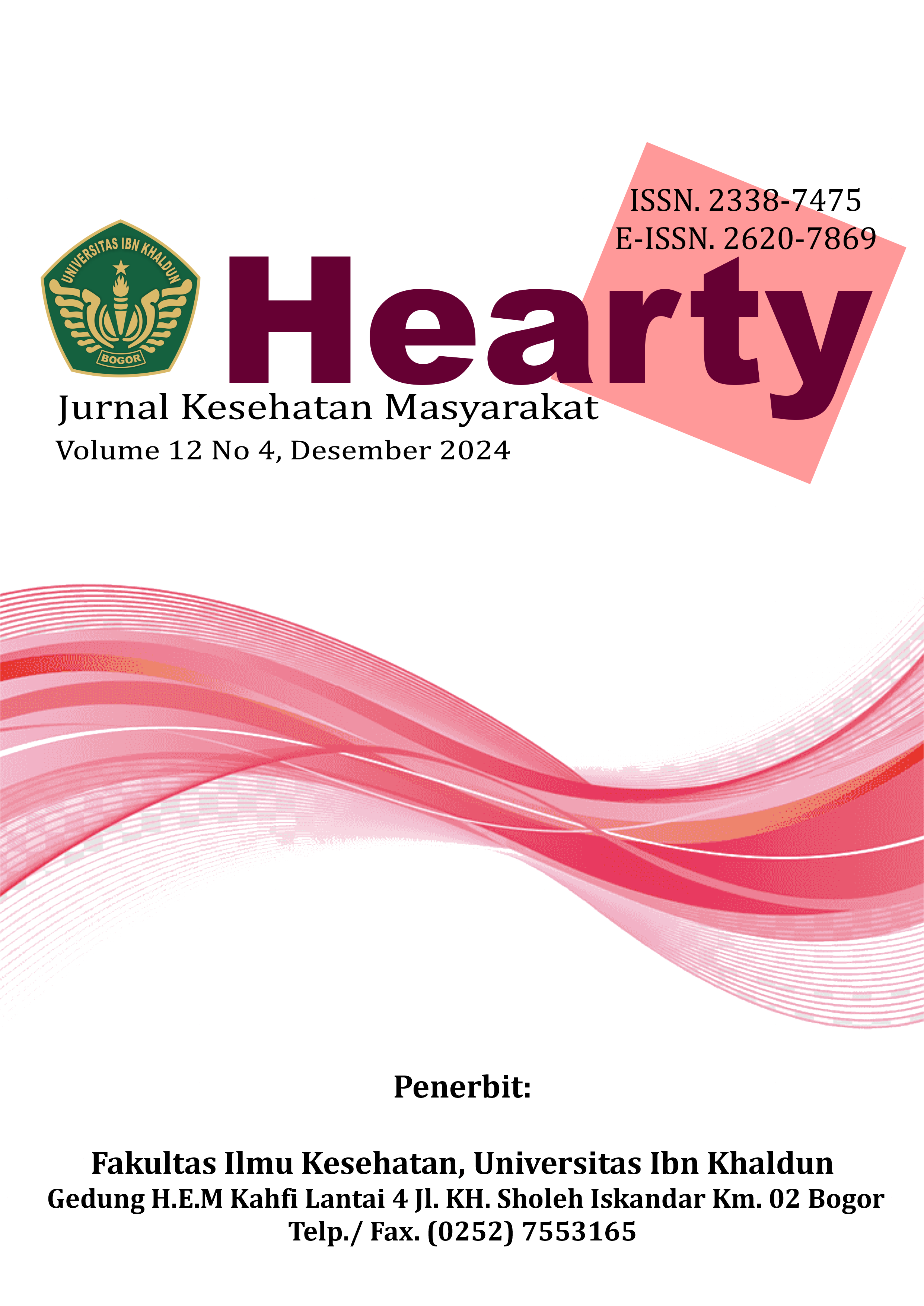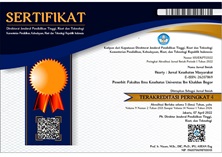ANALYSIS OF FACTORS AFFECTING THE INCIDENCE OF CHRONIC ENERGY DEFICIENCY (CHD) IN PREGNANT WOMEN IN THE BOAWAE HEALTH CENTRE
DOI:
https://doi.org/10.32832/hearty.v12i4.17100Abstract
Background: Chronic energy deficiency in pregnant women is a condition where pregnant women experience malnutrition or malnutrition for a long time, which can cause health problems for the mother and fetus. In 2022, the maternal mortality rate reached 207 per 100,000 KH, exceeding the strategic plan target of 190 per 100,000 KH. Direct causes of maternal mortality are bleeding, eclampsia, miscarriage complications, and infection; indirect causes play a major role in complications in pregnant women with chronic energy deficiency. The prevalence of chronic energy deficiency in NTT in 2022 was 36.8%; in Nagekeo Regency, it was 12.6%; and at Boawae Health Center, in 2022, the prevalence of was 13.6%; in 2023, it decreased by 11.5%. This study aims to analyze the factors that cause chronic energy deficiency in pregnant women in the Boawae Health Center area. Methods: This study is an observational analysis with a cross-sectional approach. The sampling technique was total sampling. The samples in this study were pregnant women in trimesters 1, 2, and 3 in the Boawae Health Center area. The research variables were knowledge, education, income, and work. The instrument used was a questionnaire. Data analysis using chi-squared with alpha (a = 0.05). Results: The research sample included as many as 105 pregnant women. Bivariate results showed that the variables knowledge (p = 0.982), education (p = 0.059), income (p = 0.08), and occupation (p = 0.338). This indicates that the factors of knowledge, education, income, and occupation do not have a significant relationship with chronic energy deficiency. Conclusion: There is no significant relationship between the factors of knowledge, education, income, and employment and the incidence of chronic energy deficiency (CHD) in pregnant women. Efforts to handle pregnant women with chronic energy deficiency include providing additional food to pregnant women, ensuring adequate food availability in the household, providing counseling on the importance of meeting the nutritional needs of pregnancy, and changing habits or eating patterns to the needs of pregnant women.
























